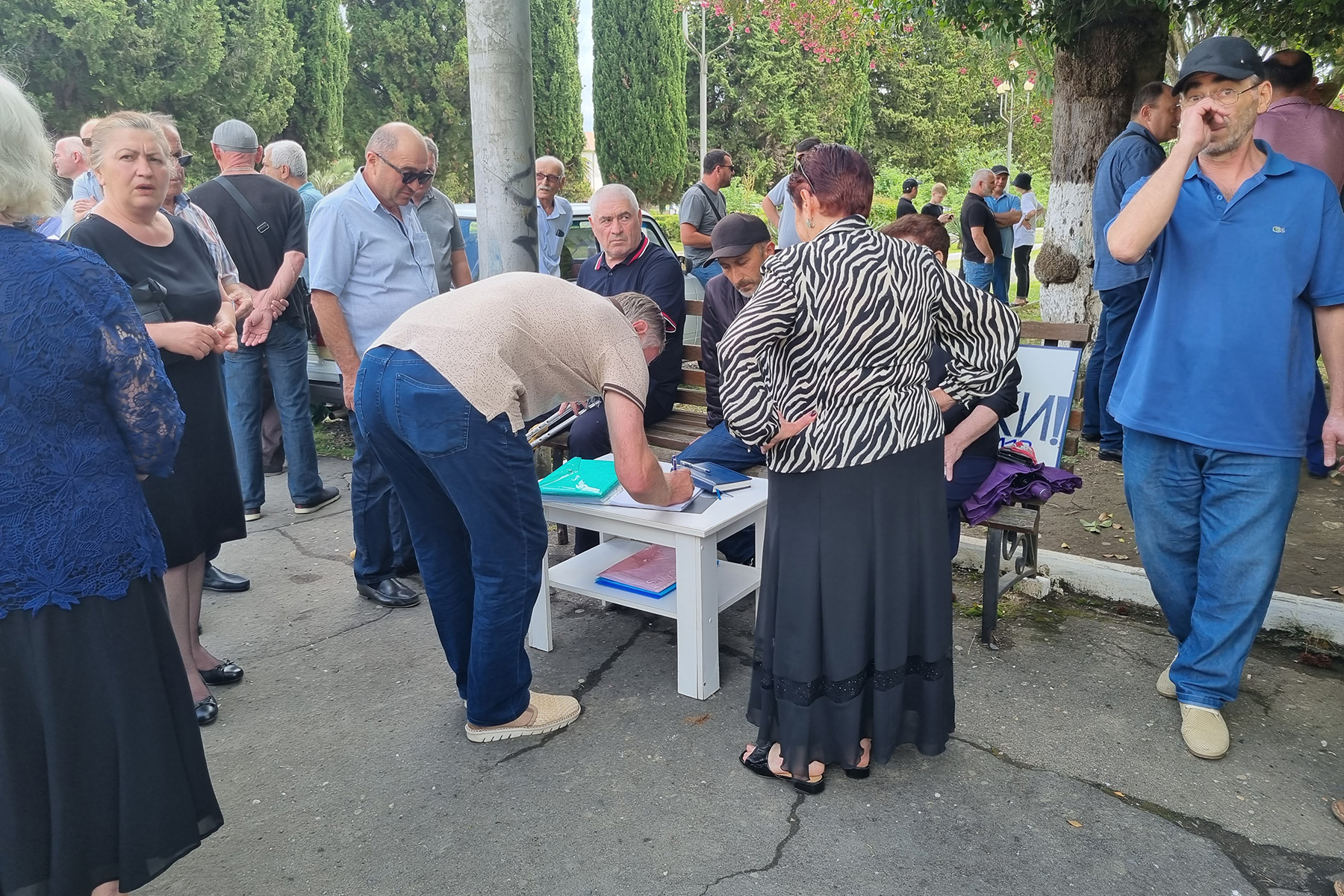
Jansuh Adleiba, an Abkhazian public activist, ended a three-week hunger strike after meeting with Abkhazian President Aslan Bzhaniya who promised him that within two weeks Abkhazian petrol prices would be as low as they are in Russia.
Adleiba met Bzhaniya on 28 June. The president also told the activist that they would have a more in-depth discussion on 4 July.
The same day, Adleiba also met with opposition leader Adgur Ardzinba, who also told Adleiba that there was now sufficient reason to end the hunger strike.
Adleiba’s protest, during which he camped out at Freedom Square in Sukhum (Sukhumi) sparked a wave of public support, with thousands signing a petition in which the activist called for lower petrol prices — which have recently spiked in Abkhazia.
Before meeting the president, Adleiba met with lawyers and economists and visited Abkhazia’s Cabinet of Ministers. The explanations he received from Abkhazia’s elected representatives — that the purchase price of petrol from Russia has become higher — he did not find satisfactory, he said, adding that he did not think the government was acting in good faith.
‘We live in a country where laws do not work. We live in a country where hundreds of laws have been passed throughout the post-war period. And knowing that none of them works, hoping that something can be achieved legally — it does not seem possible to me. Understanding all this, I am here. And there are many people like me’, Adleiba told reporters two weeks into his hunger strike.
According to the activist, he did not have much hope that his hunger strike would actually help lower petrol prices but instead hoped to signal that Abkhazian society will not be deceived by the government.
The first major rally in support of Adleiba took place at Freedom Square on 24 June, with roughly 300 people attending.
‘Our government, instead of protecting our interests, including economic interests, is protecting the interests of fuel companies,’ said Adgur Lagvilava, a local resident who came to support Adleiba.
‘We have thousands of people in our country who don’t earn money. And we already have a price increase for almost all types of goods, and also to overpay for petrol, that is, pay money into the pockets of fuel companies, which already receive super-profits from the sale of fuel in Abkhazia.’

All petrol supplied to Abkhazia is purchased by fuel companies in Russia. According to representatives of these companies, the petrol sold today at petrol stations in Abkhazia was purchased in March, when the price of petrol spiked in Russia. Due to fears that the fuel cost would rise, a petrol company representative said in a meeting with government officials, they purchased particularly large quantities. As a result, she stressed, they will not be able to reduce the price of petrol and diesel fuel.
Former Abkhazian MP Natalie Smyr also came to the rally in support of Adleiba. She headed the state budget committee and had an idea about the financial and economic aspects. According to her, the authorities made a big mistake when they changed the pricing scheme for petrol.
Until February 2022, the Cabinet of Ministers set prices for fuels (including petrol) and lubricants but afterwards, the Abkhazian Cabinet of Ministers instead set a maximum surcharge on fuel prices (e.g. 10% on top of the price for which petrol was initially purchased by the reseller in Russia).
Concomitant with the rise in the price of petrol, the cost of public transport fares has also increased. In Sukhum, the cost of a single fare, for instance, has gone up from ₽25 ($0.46) to ₽30 ($0.55). Taxi prices have also increased.
The primary geographic terms used in this article are those of the author’s. For ease of reading, we choose not to use qualifiers such as ‘de facto’, ‘unrecognised’, or ‘partially recognised’ when discussing institutions or political positions within Abkhazia, Nagorno-Karabakh, and South Ossetia. This does not imply a position on their status.








